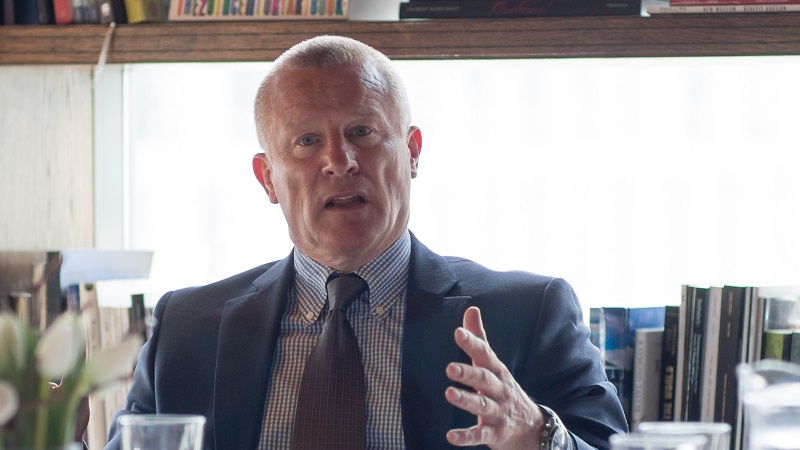Judging by the reaction to his latest venture, it may be that Neil Woodford has misjudged the public appetite for a comeback. However, his recognition that the UK market needed ‘patient capital’ – long-term investment from committed shareholders – remains important, even if he is not the best standard-bearer for the cause. Other fund managers taking this approach are starting to reap the rewards.
It is not news to say the UK market has been unloved. The uncertainty created by Brexit has been particularly unhelpful for British companies wanting to raise capital to grow. UK institutional investors have generally lacked the appetite for fast-growing but loss-making companies and the retail and wealth manager markets haven’t had the right tools to invest. This has left the UK venture capital industry with shallower pockets than its US or Chinese peers.
Investment trusts have been targeting the sector
Woodford is not the only one to spot both the problem and the inherent opportunity. Over the past few years, a number of investment trusts have emerged, aiming to provide soup-to-nuts investment for UK businesses.
The Chrysalis trust, managed by the former-Merian (now Jupiter) team, for example, specialises in this sort of ‘crossover’ capital. They invest through the lifecycle of a business and may continue to hold a company beyond IPO. The Schroders Public Private Equity trust (formerly Woodford Patient Capital) also explores this part of the market alongside the Schroders British Opportunities trust.
There are also a number of specialist trusts – Augmentum Fintech and Syncona, which focuses on life sciences, while Baillie Gifford Schiehallion fund takes the same approach on a global basis.
See also: Schroder British Opportunities trust realises 30% gain on first holding weeks after launch
Schroder British Opportunities Trust portfolio manager Tim Creed says demand has accelerated through the pandemic with a lot of fast-growing British companies needing funding to realise their ambitions.
“Zoom was an obvious winner from the pandemic, but we saw a lot of UK companies that had a similar successes, where growth had accelerated, especially in technology or healthcare, where capital helped them grow faster than previously expected,” he says.
“There were also great companies affected by the pandemic. They were still good businesses but needed a little more capital to move in a slightly different direction or weather some short-term difficulties.”
UK has been losing out to other parts of the world
The hope is that these trusts can help plug a leak, whereby some UK technology and biotechnology companies look to raise capital abroad. In January of this year British biotech Immunocore picked the Nasdaq over London for its IPO, while software group Blue Prism also said it was looking to list outside London. At the time, Jason Kingdon, chief executive of Blue Prism, said the UK markets didn’t have the sector expertise to value developers in an “appropriate manner”.
The UK IPO market has stalled since 2008. In 2005 there were more than 400 IPOs on the UK market. In 2020, it was 50; in 2019, it was 36 and in 2018, it was 89. The risk is that without the right capital in place, the UK market loses a lifeblood of new IPOs and the market fails to regenerate.
See also: Ex-Woodford trust rallies 9% after holding quadruples but trapped fund investors miss out
But the UK can compete
Creed says that the US VC market will always be an attractive place for technology companies to list, but that doesn’t mean the UK can’t compete. Equally, investors may be encouraged by the pipeline of IPOs in the UK market as it stands. Major UK IPOs slated for this year include food delivery service Deliveroo, which is planning to list at a valuation of between $8bn and $13bn. Cybersecurity firm Darktrace is also looking at a potential stock market listing this year, while currency group Transferwise also looks set to list.
This shows the potential for investors in this part of the market, according to Peel Hunt head of investment trust research Anthony Leatham.
“In Chrysalis, for example, there are up to six IPOs that could happen in the near term,” he says. “A lot hinges on the companies themselves and the retail support for an IPO, but even if the three most likely stocks listed – Klarna, Transferwise and Graphcore, there could be a 50% uplift to the NAV of the trust.”
That would see its current premium to NAV become a double-digit discount. Leatham believes this part of the market offers exciting opportunities, through investors need to get under the skin of the trusts.
Creed points out that for these companies, it’s not just about the IPO market, many will be sold to trade buyers and will be able to continue their growth that way. Here too, the market is relatively buoyant.
The crucial factor for these companies is long-term capital. Tim Creed points out that many businesses can take as long as 10 years to go from being a start-up to a success story. If investors move in and out, it’s bad for them and bad for the business: “You need to maintain exposure through the cycle and keep it consistent.”
See also: AJ Bell, Hargreaves and II demand greater access for retail investors in IPOs
Woodford comeback doesn’t detract from fundamental rationale
In this respect, Woodford – and the flows he has created – has been an unwelcome distraction, but it hasn’t changed the fundamental rationale for this type of investment approach. The proof that there is an opportunity in this part of the market should be reflected in performance and the trusts have seen a strong year in 2020.
The Chrysalis fund is up 56.2% over the past year. Most of this performance was delivered before the Brexit deal had been felt in the market. The Schroder UK Public Private trust is up 14.3% in spite of the tricky legacy inherited by the managers, while the British Opportunities trust has made a strong start since its launch in January.
So while Neil Woodford is wrong about all sorts of things, he is not wrong that this part of the market holds exciting opportunities, needs capital and has the potential to deliver high returns. Whether he is the right person to deliver on that is another question and in the meantime, there are plenty of others doing the job without the drama.
See also: Stars align for Schroders £250m investment trust IPO after rivals failed to launch







